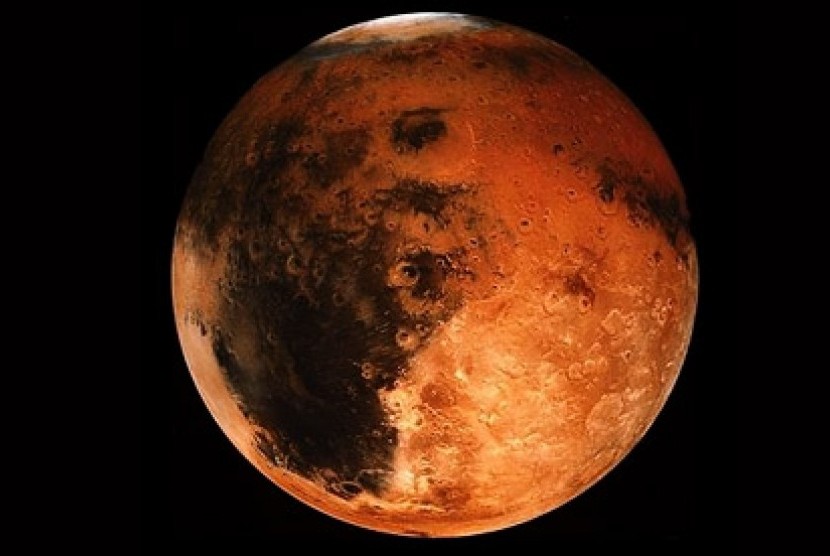Mars doesn’t just get plenty of water. The meteorite that hit Mars may also have supplied amino acids, the essential building blocks of RNA and DNA, the blueprints for life.
Meteor collision
Billions of years ago the surface of Mars was bombarded by meteorites. These impacts eject material from the planet’s crust directly into space.
This Martian fragment is traveling through space. Some of these reached Earth and were identified by humans thousands of years later.
Researchers studied 31 meteorites from Mars and discovered the presence of chromium-54, an isotope that cannot occur naturally on Mars. Its presence suggests that samples of the Martian crust that have reached Earth have been impacted by alien material, most likely belonging to asteroids from the outer solar system.
Judging by the distribution of the material that reached Earth and the fingerprints of chromium isotopes, the researchers were able to calculate how many of these ice-rich meteorites crashed into ancient Mars. Since this meteorite is 10% water, the authors conclude in the journal The progress of science that this asteroid could provide enough water to cover the entire surface of Mars to a depth of 300 meters.
“Right now, Mars is bombarded by ice-filled asteroids. It happened in the first 100 million years of planetary evolution. Another interesting aspect is that asteroids also carry organic molecules that are biologically essential for life,” said Professor Martin Bizzarro of the Center for Star and Planet Formation at the University of Copenhagen.
Scientists have been able to unravel this interesting secret made possible by the way the surface of Mars was formed. Unlike Earth, whose crust is constantly being recycled by the churning motion of tectonic plates carrying material within, Mars is tectonically inactive.
“The tectonic plates on Earth have erased all evidence of what happened in the first 500 million years of our planet’s history,” Bizzarro said.
This means that the surface of Mars has been static since its formation. As a result, the chemical signatures of meteorites remain in the Martian crust to this day.


